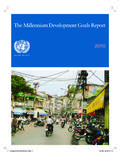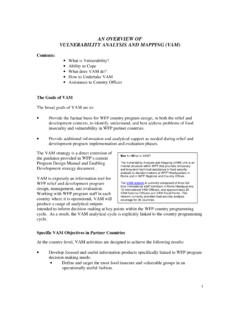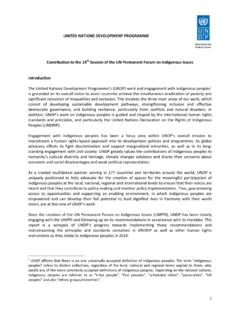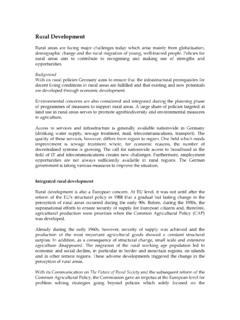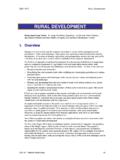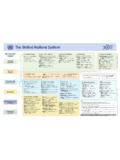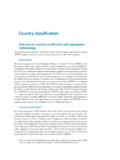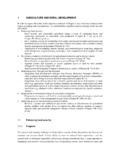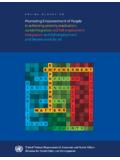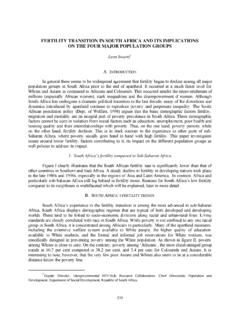Transcription of An Agenda for Peace Preventive diplomacy, peacemaking …
1 A/47/277 - S/24111 17 June 1992 An Agenda for Peace Preventive diplomacy , peacemaking and Peace -keeping Report of the Secretary-General pursuant to the statement adopted by the Summit Meeting of the Security Council on 31 January 1992 Introduction 1. In its statement of 31 January 1992, adopted at the conclusion of the first meeting held by the Security Council at the level of Heads of State and Government, I was invited to prepare, for circulation to the Members of the United Nations by 1 July 1992, an "analysis and recommendations on ways of strengthening and making more efficient within the framework and provisions of the Charter the capacity of the United Nations for Preventive diplomacy , for peacemaking and for 2. The United Nations is a gathering of sovereign States and what it can do depends on the common ground that they create between them.
2 The adversarial decades of the cold war made the original promise of the Organization impossible to fulfil. The January 1992 Summit therefore represented an unprecedented recommitment, at the highest political level, to the Purposes and Principles of the Charter. 3. In these past months a conviction has grown, among nations large and small, that an opportunity has been regained to achieve the great objectives of the Charter - a United Nations capable of maintaining international Peace and security, of securing justice and human rights and of promoting, in the words of the Charter, "social progress and better standards of life in larger freedom". This opportunity must not be squandered. The Organization must never again be crippled as it was in the era that has now passed. 4. I welcome the invitation of the Security Council, early in my tenure as Secretary-General, to prepare this report.
3 It draws upon ideas and proposals transmitted to me by Governments, regional agencies, non-governmental organizations, and institutions and individuals from many countries. I am grateful for these, even as I emphasize that the responsibility for this report is my own. 5. The sources of conflict and war are pervasive and deep. To reach them will require our utmost effort to enhance respect for human rights and fundamental freedoms, to promote sustainable economic and social development for wider prosperity, to alleviate distress and to curtail the existence and use of massively destructive weapons. The United Nations Conference on Environment and Development, the largest summit ever held, has just met at Rio de Janeiro. Next year will see the second World Conference on Human Rights. In 1994 Population and Development will be addressed. In 1995 the World Conference on Women will take place, and a World Summit for Social Development has been proposed.
4 Throughout my term as Secretary-General I shall be addressing all these great issues. I bear them all in mind as, in the present report, I turn to the problems that the Council has specifically requested I consider: Preventive diplomacy , peacemaking and Peace -keeping - to which I have added a closely related concept, post-conflict Peace -building. 6. The manifest desire of the membership to work together is a new source of strength in our common endeavour. Success is far from certain, however. While my report deals with ways to improve the Organization's capacity to pursue and preserve Peace , it is crucial for all Member States to bear in mind that the search for improved mechanisms and techniques will be of little significance unless this new spirit of commonality is propelled by the will to take the hard decisions demanded by this time of opportunity.
5 7. It is therefore with a sense of moment, and with gratitude, that I present this report to the Members of the United Nations. I. The changing context 8. In the course of the past few years the immense ideological barrier that for decades gave rise to distrust and hostility _ and the terrible tools of destruction that were their inseparable companions _ has collapsed. Even as the issues between States north and south grow more acute, and call for attention at the highest levels of government, the improvement in relations between States east and west affords new possibilities, some already realized, to meet successfully threats to common security. 9. Authoritarian regimes have given way to more democratic forces and responsive Governments. The form, scope and intensity of these processes differ from Latin America to Africa to Europe to Asia, but they are sufficiently similar to indicate a global phenomenon.
6 Parallel to these political changes, many States are seeking more open forms of economic policy, creating a world wide sense of dynamism and movement. 10. To the hundreds of millions who gained their independence in the surge of decolonization following the creation of the United Nations, have been added millions more who have recently gained freedom. Once again new States are taking their seats in the General Assembly. Their arrival reconfirms the importance and indispensability of the sovereign State as the fundamental entity of the international community. 11. We have entered a time of global transition marked by uniquely contradictory trends. Regional and continental associations of States are evolving ways to deepen cooperation and ease some of the contentious characteristics of sovereign and nationalistic rivalries. National boundaries are blurred by advanced communications and global commerce, and by the decisions of States to yield some sovereign prerogatives to larger, common political associations.
7 At the same time, however, fierce new assertions of nationalism and sovereignty spring up, and the cohesion of States is threatened by brutal ethnic, religious, social, cultural or linguistic strife. Social Peace is challenged on the one hand by new assertions of discrimination and exclusion and, on the other, by acts of terrorism seeking to undermine evolution and change through democratic means. 12. The concept of Peace is easy to grasp; that of international security is more complex, for a pattern of contradictions has arisen here as well. As major nuclear Powers have begun to negotiate arms reduction agreements, the proliferation of weapons of mass destruction threatens to increase and conventional arms continue to be amassed in many parts of the world. As racism becomes recognized for the destructive force it is and as apartheid is being dismantled, new racial tensions are rising and finding expression in violence.
8 Technological advances are altering the nature and the expectation of life all over the globe. The revolution in communications has united the world in awareness, in aspiration and in greater solidarity against injustice. But progress also brings new risks for stability: ecological damage, disruption of family and community life, greater intrusion into the lives and rights of individuals. 13. This new dimension of insecurity must not be allowed to obscure the continuing and devastating problems of unchecked population growth, crushing debt burdens, barriers to trade, drugs and the growing disparity between rich and poor. Poverty, disease, famine, oppression and despair abound, joining to produce 17 million refugees, 20 million displaced persons and massive migrations of peoples within and beyond national borders. These are both sources and consequences of conflict that require the ceaseless attention and the highest priority in the efforts of the United Nations.
9 A porous ozone shield could pose a greater threat to an exposed population than a hostile army. Drought and disease can decimate no less mercilessly than the weapons of war. So at this moment of renewed opportunity, the efforts of the Organization to build Peace , stability and security must encompass matters beyond military threats in order to break the fetters of strife and warfare that have characterized the past. But armed conflicts today, as they have throughout history, continue to bring fear and horror to humanity, requiring our urgent involvement to try to prevent, contain and bring them to an end. 14. Since the creation of the United Nations in 1945, over 100 major conflicts around the world have left some 20 million dead. The United Nations was rendered powerless to deal with many of these crises because of the vetoes - 279 of them - cast in the Security Council, which were a vivid expression of the divisions of that period.
10 15. With the end of the cold war there have been no such vetoes since 31 May 1990, and demands on the United Nations have surged. Its security arm, once disabled by circumstances it was not created or equipped to control, has emerged as a central instrument for the prevention and resolution of conflicts and for the preservation of Peace . Our aims must be: - To seek to identify at the earliest possible stage situations that could produce conflict, and to try through diplomacy to remove the sources of danger before violence results; - Where conflict erupts, to engage in peacemaking aimed at resolving the issues that have led to conflict; - Through Peace -keeping, to work to preserve Peace , however fragile, where fighting has been halted and to assist in implementing agreements achieved by the peacemakers; - To stand ready to assist in Peace -building in its differing contexts: rebuilding the institutions and infrastructures of nations torn by civil war and strife; and building bonds of peaceful mutual benefit among nations formerly at war; - And in the largest sense, to address the deepest causes of conflict: economic despair, social injustice and political oppression.
